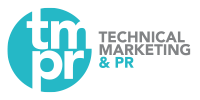How to Get the Most From Your Agency
When you first engage with a PR agency it is vital that both parties agree upfront what is expected from each other and what success looks like.Here are few pointers to keep in mind:
Communication is a two-way thing
Your PR team needs input from all levels of your business in order to make a campaign successful and everyone, from the receptionist to CEO may be required to get involved. Your PR team will regularly keep you up to date on what they are doing but it’s important that your organisation does the same in order to get the most from your PR effort. Regular PR update meetings should take place at least once a month with senior management in attendance.
It’s all about momentum
One of the first mistakes an orgainsation makes when engaging with a PR company is that, once a ‘big splash’ has been made at the start of the campaign, things can start to lose momentum. This can really damage your PR efforts because, your PR team will have been working hard to improve your media relations and make sure you are front of mind with key stakeholders and commentators. If things go quiet for a couple of months you are back to square one so working closely with your PR team to ensure that there is a plan in place for regular quality output will ensure that your PR is as effective as it can be in the long-term.
Take a partnership approach
There is one constant in every successful client-PR agency relationship: the two entities are true partners. You should view your PR agency as an extension of your marketing department. They are the conduits that enable your target audiences to learn about your company’s products and service. Therefore, you and your PR agency must be in lock-step, much like a partner who you are working with to bring a new product to market.
In addition to this, make a conscious effort to include your PR agency team’s most senior member(s) in company strategic planning whenever possible and appropriate. This will give the agency a very real sense of ownership and involvement, will enable them to be proactive, and is also likely to bring another valuable point of view to such planning.
Be constructive
Constructive criticism must be viewed as a positive thing on both sides, and you should have an open relationship with your PR team that allows for this.
Listen to their advice
When you engage with a PR practitioner you are investing money and resources so that you can benefit from their expertise. Experienced PR professionals are constantly aware of the pressures on your time and will only ask you for something because they believe it is essential for the success of your PR activity.
Remember, your PR agency is a trusted extension of your marketing department, so minimise bottleneck situations by viewing your PR counterparts just like colleagues who can speak with anyone in your organisation
Monitor, measure and evaluate
If you don’t measure and monitor your activity then you don’t know what is working and what isn’t. Agree upfront with your PR team what success looks like and make sure that checks and measures are included in your PR strategy. Work with your PR team to produce evaluation reports on a quarterly basis as a minimum. This will not only help improve the effectiveness of your PR but will also help you gauge your return on investment and justify your use of budget to senior management within your organisation.
Download the ‘TMPR Guide to Getting the Most From Your Agency’ here.
